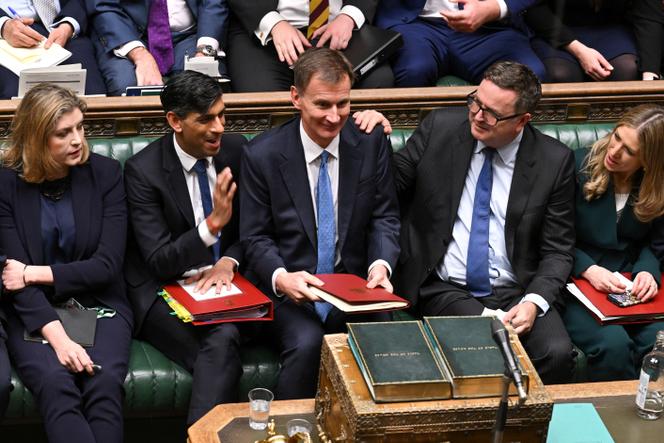


The British government is putting its economic house in order for the general election. It is due to take place between now and January 2025 (and will more likely be held in autumn 2024), and Jeremy Hunt, the Chancellor of the Exchequer, announced a series of tax cuts on Wednesday, November 22. To make sure the message is clearly received by the public, he is even accelerating the start of some of these tax giveaways to January, instead of April, which is normally the start of the UK tax year.
In the Autumn Statement, a sort of mid-year budget, Hunt outlined a cut in social contributions (from 12% to 10% of wages), a series of tax giveaways for self-employed entrepreneurs and a major move to allow businesses to better deduct their investments. "We are delivering the biggest business tax cuts in modern British history. The largest ever cut to employee and self employed national insurance and the biggest package of tax cuts to be implemented since the 1980s," Hunt boasted in the House of Commons, as Prime Minister Rishi Sunak looked on approvingly. According to him, after a period of crisis, the UK "has turned the page" and is "growing."
This rhetoric foreshadows the political battle to come. The Conservative party is trying to raise the specter of a Labor opposition with a spendthrift image, "which raised taxes every year during its 13 years in power [1997-2010]," according to Hunt. Opposite him, Rachel Reeves, Labour's shadow chancellor of the exchequer, is at pains to point out the obvious, namely that the Conservatives have been in power since 2010: "That's 13 years of economic failure." For her, the tax cuts announced on Wednesday symbolize "the cynicism of a government desperately clinging to power."
Behind the political passing of the buck, the UK is facing a growing problem: The tax burden is now at its highest level since the Second World War, even as public services are creaking everywhere. Taxation, which weighed 33% of GDP until 2019, a relatively stable level for 30 years, has now risen to just over 36%. And according to forecasts by the Office for Budget Responsibility (OBR), the official forecasting body, it is set to rise to 37.7% by 2028, even after Wednesday's announcement.
"When is a tax cut not a tax cut?" quipped Paul Johnson on X, the director of the Institute for Fiscal Studies, a think tank. Politically, this trend is particularly unpopular with Conservative activists, who look to Margaret Thatcher as their role model. In the summer of 2022, the brief prime minister Liz Truss was elected on a promise to cut taxes. But her budget, too brutal and with no explanation of how it would be financed, caused the markets to panic. The main reason for the UK's tax increase is its economic stagnation. Growth in 2023 is expected to be 0.6% and 0.7% in 2024, according to the OBR. Low growth means low tax revenues.
You have 50% of this article left to read. The rest is for subscribers only.
